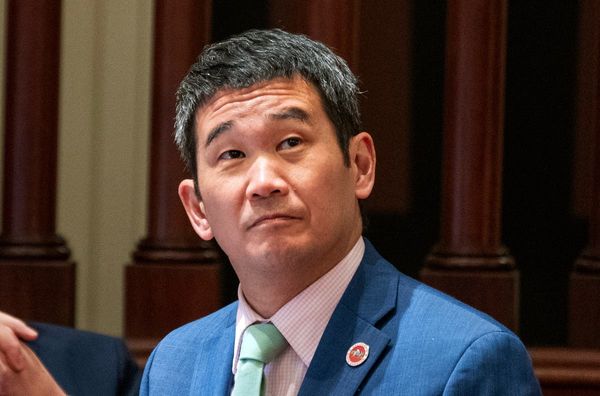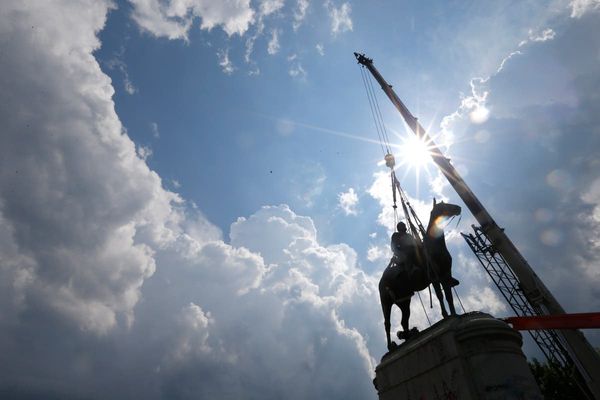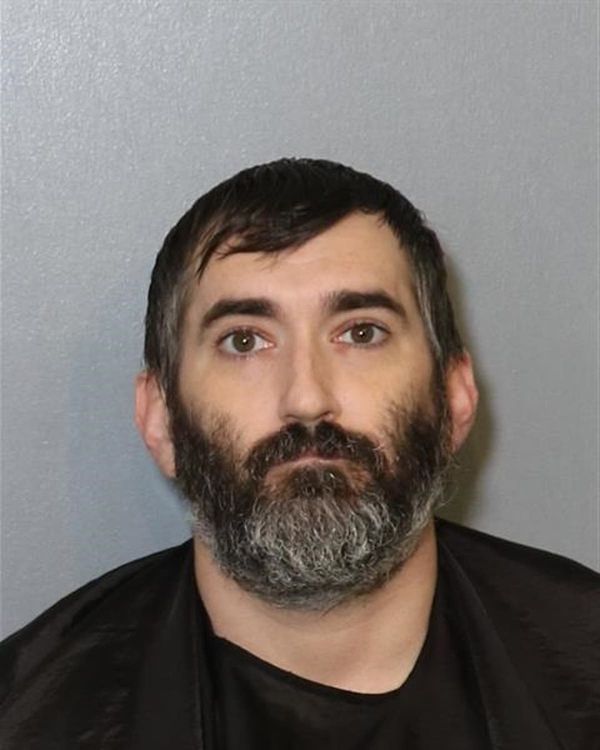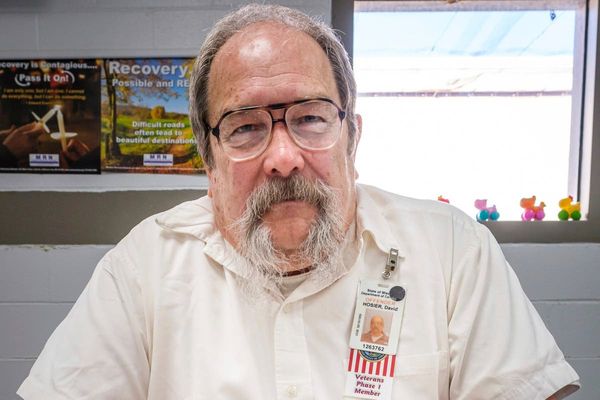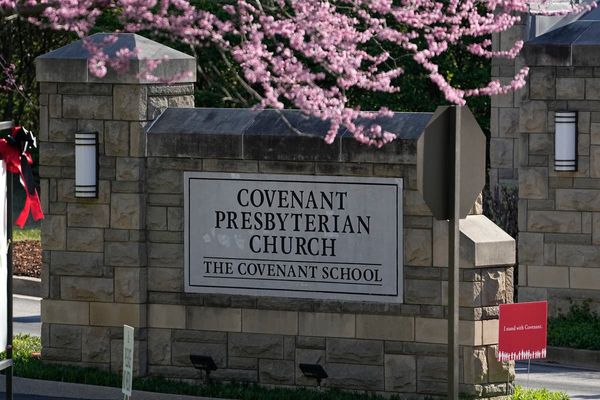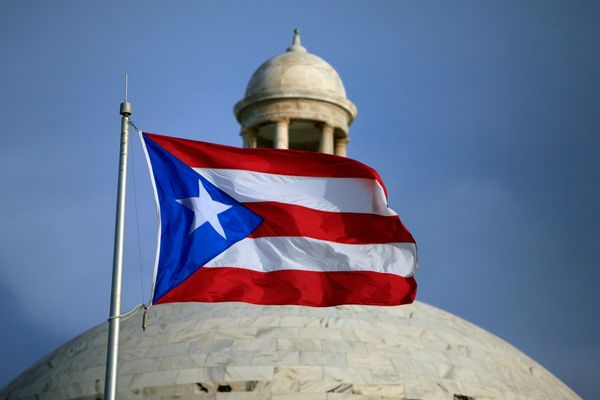
In their uncle’s house, next door to the ruins of their demolished home, two young boys from Aqbat Jaber refugee camp in the occupied West Bank were still asleep at midmorning.
A few nights ago, their own bedroom was blown up during an Israel Defence Forces (IDF) operation in the camp on the outskirts of Jericho: it was targeted because the boys’ father, Maher Shalon, has been arrested on suspicion of killing an Israeli settler. A 17-year-old Palestinian was killed during the raid on Friday, six people injured, and two arrested.
After the family home was destroyed, the boys’ mother took their older brother to Bethlehem for medical treatment. The younger children are now being cared for by their uncle, Mansour, and their paternal grandmother, Hamda. According to them, the boys have not gone outside since.
“The Israelis are coming almost every day since 7 October. They want revenge,” said Mansour, 56, referring to the date the Palestinian militant group Hamas broke out of the besieged Gaza Strip, massacring 1,400 Israelis and sparking a new war in which more than 5,700 Palestinians in the coastal exclave have been killed.
Aqbat Jaber is one of the 19 camps scattered across the West Bank, set up in the aftermath of the creation of Israel in 1948, to house people fleeing what Palestinians call the Nakba, or catastrophe. Today, the camps are still slum-like mazes of narrow streets with few services, plagued by poverty and crime. They are all also centres of armed resistance to the Israeli occupation.

The Aqbat Jaber raid on Friday was just one of several major Israeli operations in West Bank refugee camps and cities over the past two weeks – a signal that Israel also considers the territory fair game in its new war with Hamas in Gaza, and of how increasing military activity is liable to set the already unstable West Bank alight too.
More than 90 people have been killed, mostly in altercations with the IDF, and 1,200 Palestinians have been arrested by Israeli forces in the West Bank since the conflict broke out, according to Palestinian data.
At least eight Palestinian communities have also been forced to leave their land in the face of escalating violence from settlers, Israelis who live in the West Bank. In Wadi as-Seeq, near Ramallah, soldiers and settlers detained three Palestinians, stripping them to their underwear before beating them, urinating on them, extinguishing cigarettes on them, and sexually assaulting them. The IDF has opened an investigation.
The entire territory – home to 3 million Palestinians, and about 500,000 Israelis – feels like it is on the verge of an explosion. On Tuesday, Aqbat Jaber was uneasy; outside the entrance to Jericho, cars and trucks snaked back for about a kilometre in each direction in hours-long waits at checkpoints, a scene repeated in all of the West Bank’s cities. Next to one of the makeshift concrete booths, a young Palestinian man was sitting on the ground, hands tied behind his back and blindfolded, as he waited in the desert sun for the soldiers to inspect his vehicle.
The two-storey Shalon house now lies in ruins, the surrounding date palms covered in rubble dust. During the demolition, Mansour said, soldiers had entered his neighbouring home too, removing all the windows, for what they said was the family’s safety. Two rooms of Mansour’s house were also damaged.
At the family home of 22-year-old Mahmoud Hamdan, killed by an Israeli sniper after being caught unawares by a raid while on his way to work, his parents Tahani and Mohammed, like everyone else in the region, were glued to the news. The Jordanian channel they were watching did not censor or edit its material from Gaza: there was no respite from footage of dead children being carried from ambulances and laid in body bags.
“I feel the pain of all mothers since Mahmoud was killed. I know the Israelis could come back any time and kill the rest of my children,” said Tahani, 44, as she tried to hold back tears.
Before the decades-old Israeli-Palestinian conflict roared back to life on the Gaza front earlier this month, most people in the region had been more worried about the possibility of a return to full-scale fighting in the West Bank. 2022 was the bloodiest year in the occupied territory since the close of the second intifada, or Palestinian uprising, in 2005, and 2023 had surpassed the previous year’s grim statistics even before the new war erupted.
Hamas maintains active cells across the West Bank, and some measure of popular support; the Islamist group has stoked the violence here too. But the new generation of fighters that has come of age,, mainly concentrated in Nablus and Jenin, are only loosely affiliated with the established factions such as Hamas and their secular rivals, Fatah. For now, they only operate locally.
The rising tide of violence is putting pressure on Fatah, which dominates the West Bank’s semi-autonomous Palestinian Authority (PA), and is widely viewed as undemocratic and corrupt after 16 years without elections. Mahmoud Abbas, the PA president, is 88, but has refused to appoint a successor; the territory faces a serious power vacuum when he leaves, or dies, in office.
The PA is also deeply unpopular because it cooperates with Israel on security matters, and it has already lost control of several camps across the West Bank to militias over the last two years. PA security forces have put down protests against the war in Gaza with teargas and rubber bullets, further adding to the idea that it no longer represents the Palestinian people.
“The PA acts like it is with the Israelis,” said a 19-year-old getting his hair cut at a barbershop in Aqbat Jaber. He refused to give his name, citing security concerns. “It is very obvious why my generation has no hope in an endless occupation, and thinks the militias have the answer.”

During the current crisis, the PA has been almost completely sidelined in international mediation and de-escalation efforts.
“Sooner or later, the situation in the West Bank will ignite,” said Jalal Zakout, a member of Ramallah’s Palestine National Council. “It’s a very dangerous situation … Israel has tried to divide the West Bank and Gaza, but we are all Palestinian. What is happening there cannot not have an effect here and in Jerusalem.”
It is not just the West Bank that is expecting more fighting: Israeli communities in the north of the country, and Lebanese communities just over the Blue Line boundary between the two, are also bracing for the outbreak of widespread violence.
“This time is different,” said Mohammed Abdul Salah, the barber, 38. “Every generation, you see it get worse and worse. But nothing will be the same after this,” he said.
